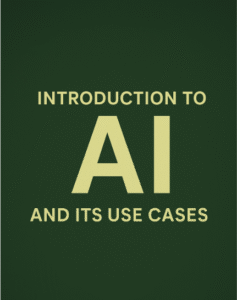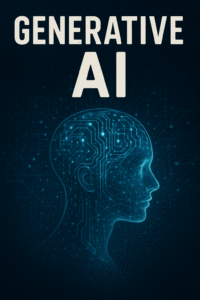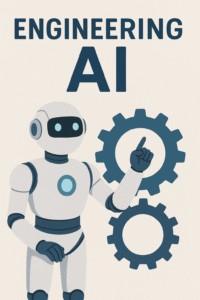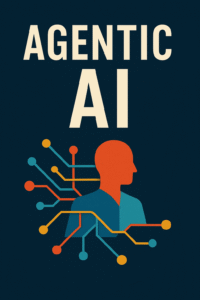Artificial Intelligence (AI) is the field of computer science and engineering that focuses on the development of intelligent machines that can perform tasks that would typically require human intelligence. AI encompasses a wide range of technologies, from rule-based systems to machine learning algorithms and deep neural networks.
Machine learning (ML) is a subset of AI that focuses on building algorithms that can learn from data and make predictions or decisions without being explicitly programmed. ML algorithms can be trained on large datasets to identify patterns and relationships, and can then be used to make predictions or decisions on new data.
Some of the key applications of AI and machine learning include:
- Natural Language Processing (NLP): NLP refers to the ability of machines to understand and process human language. This includes tasks such as speech recognition, language translation, and sentiment analysis.
- Computer Vision: Computer vision involves the development of algorithms that can analyze and interpret visual data, such as images and videos. Applications of computer vision include object detection and recognition, facial recognition, and self-driving cars.
- Predictive Analytics: Predictive analytics involves the use of ML algorithms to identify patterns and trends in large datasets and make predictions about future outcomes. This is used in a variety of industries, such as finance, healthcare, and marketing.
- Robotics: Robotics involves the development of machines that can perform physical tasks that would typically require human intelligence and dexterity. ML algorithms are often used to enable robots to adapt to changing environments and learn from experience.
- Fraud Detection: ML algorithms can be used to detect fraudulent activity in financial transactions and other areas, by identifying patterns and anomalies in large datasets.
- Personalized Recommendations: ML algorithms are used in many recommendation systems to analyze user behavior and preferences and make personalized recommendations for products, services, and content.
AI and machine learning are rapidly advancing fields that are likely to have a significant impact on a wide range of industries and areas of life in the coming years.
Artificial Intelligence (AI) and Machine Learning (ML) are rapidly growing fields that require specialized skill sets. Here are some of the common job roles in AI and ML:
- Data Scientist: A data scientist uses statistical and machine learning techniques to analyze large datasets and extract insights. They need to have strong analytical skills and expertise in programming languages such as Python and R.
- Machine Learning Engineer: A machine learning engineer designs and builds ML systems, such as predictive models and recommendation engines. They need to have a deep understanding of algorithms, data structures, and software engineering principles.
- AI Researcher: An AI researcher designs and develops new AI algorithms, models, and architectures. They need to have a strong background in mathematics, statistics, and computer science.
- AI Developer: An AI developer creates AI applications and systems, such as chatbots, virtual assistants, and autonomous vehicles. They need to have expertise in programming languages such as Python, Java, and C++, and experience with AI frameworks such as TensorFlow and PyTorch.
- AI Ethicist: An AI ethicist is responsible for ensuring that AI systems are designed and deployed ethically. They need to have expertise in ethics, law, and policy, and a deep understanding of AI and its implications.
- AI Product Manager: An AI product manager is responsible for managing the development and deployment of AI products and systems. They need to have expertise in product management, user experience design, and AI technology.
Overall, AI and ML are exciting fields that offer a wide range of job opportunities. The key skills required for these job roles include strong analytical skills, expertise in programming languages and software engineering principles, and a deep understanding of AI and ML algorithms and techniques.
2. Types of Artificial Intelligence
Artificial Intelligence can be divided based on capabilities and functionalities. There are mainly three types of artificial intelligence (AI) based on their capabilities :
- Narrow or Weak AI: This type of AI is designed to perform a single specific task, such as speech recognition, image recognition, or playing a game. Narrow AI uses machine learning algorithms, such as supervised or unsupervised learning, to perform its task. Examples of narrow AI include Siri, Alexa, and Google Assistant.
- General or Strong AI: This type of AI is designed to have human-like intelligence, including the ability to reason, learn, and understand natural language. General AI aims to be capable of performing any intellectual task that a human can do. However, this type of AI is still in the early stages of development and not yet available.
- Artificial Superintelligence: This type of AI is an advanced form of General AI that surpasses human intelligence and capabilities in every way. Artificial Superintelligence has the ability to improve itself and perform tasks that humans cannot even comprehend. However, this type of AI is still largely theoretical and not yet developed.
Under functionalities, we have four types of Artificial Intelligence :
- Reactive Machines: These are AI systems that can only react to specific situations in their environment. They do not have any memory or ability to learn from past experiences. Examples of reactive machines include chess-playing computers or autonomous vehicles that operate based on real-time sensory inputs.
- Limited Memory: These are AI systems that can use past experiences to inform their present actions, but only in a limited way. They have some memory of past events and can learn from them, but their memory is not as extensive as a human’s. Examples of limited memory AI include speech recognition systems or spam filters.
- Theory of Mind: These are AI systems that can understand the mental states of other entities and use this information to interact with them in a more natural way. They can recognize that other entities have beliefs, desires, and emotions, and use this information to predict their behavior. Theory of mind AI is still largely theoretical and is an area of active research.
- Self-awareness: These are AI systems that have a sense of self and their own existence. They can understand their own limitations and capabilities, and use this understanding to improve their own performance. Self-aware AI is still largely theoretical and is an area of active research.











